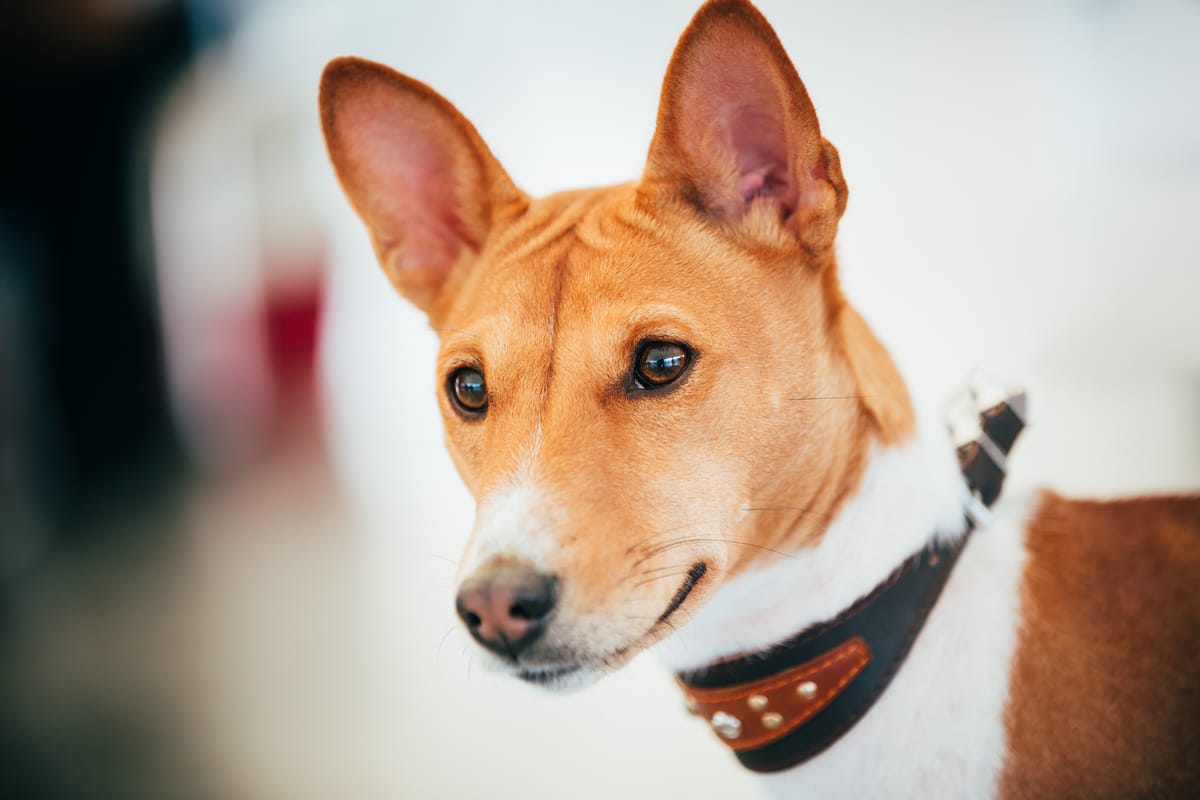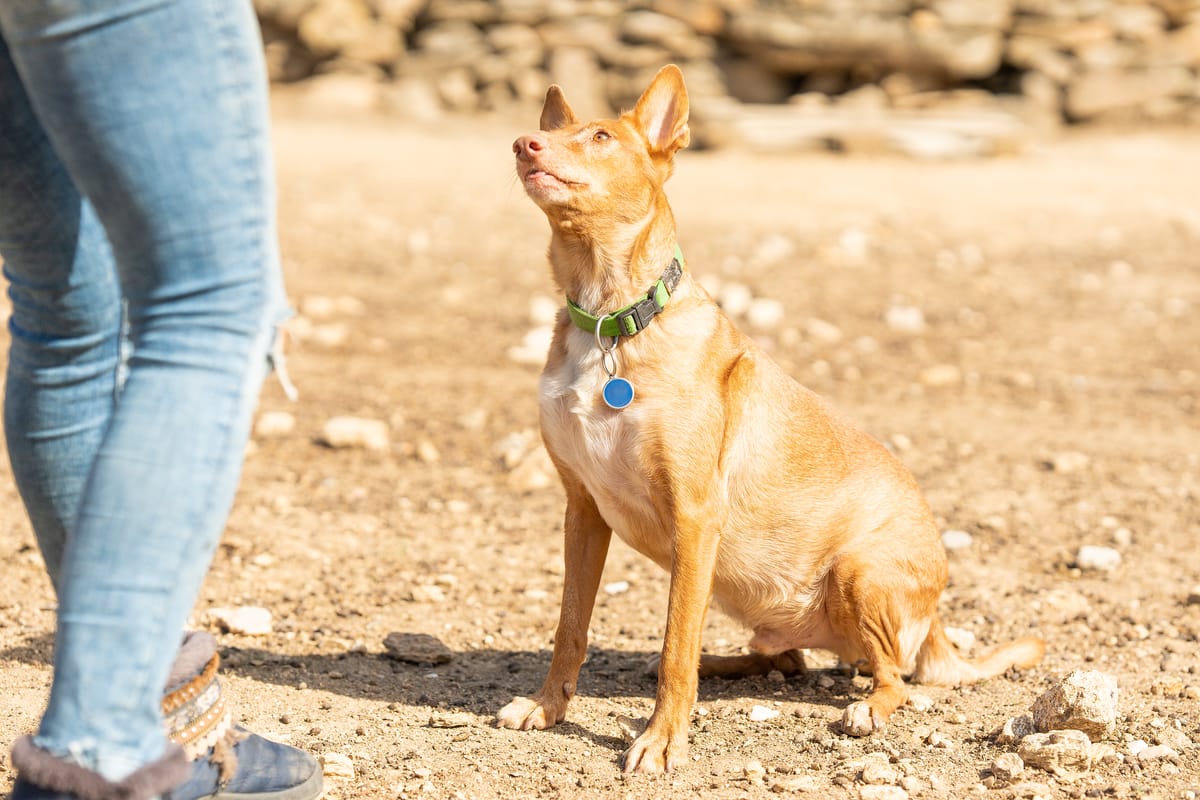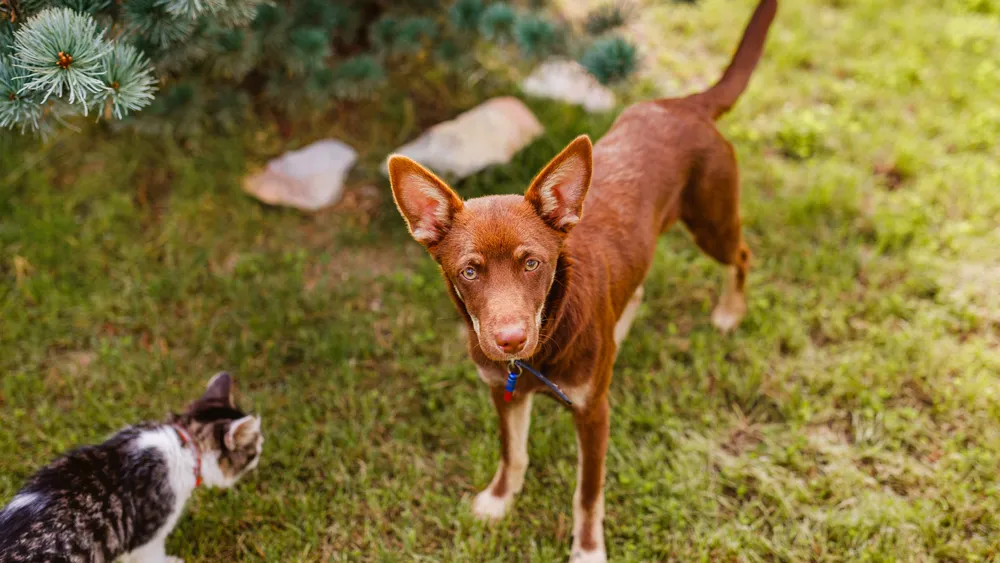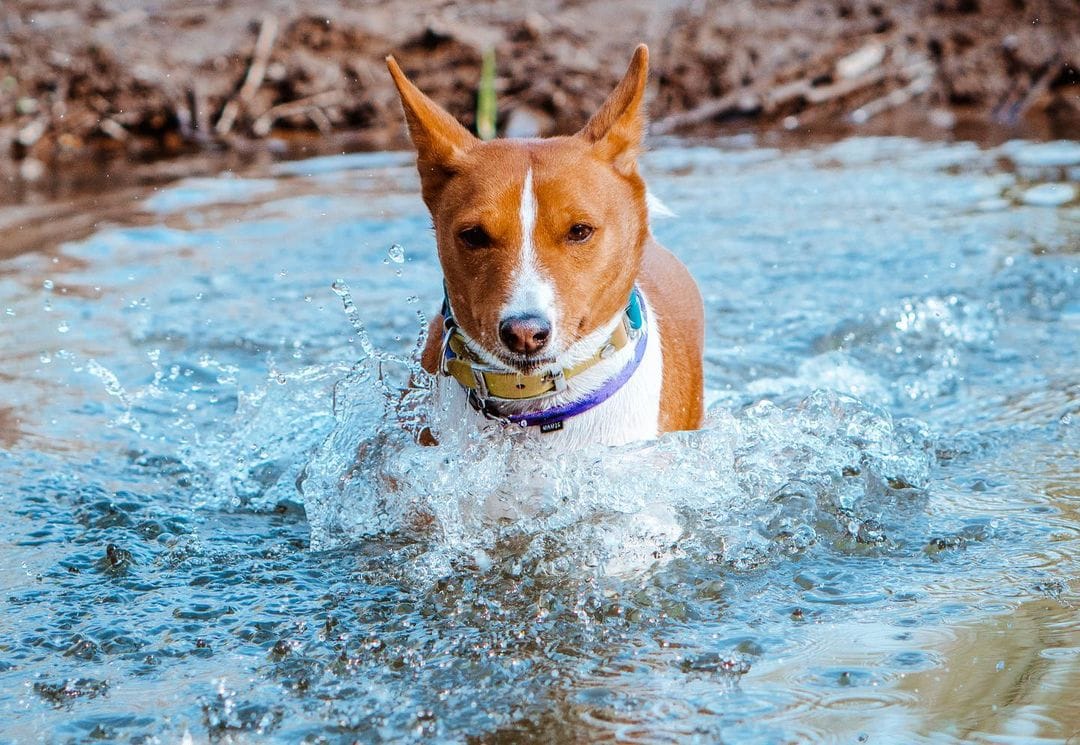Basenji dogs are a unique breed that originated in Africa. One of the most interesting things about these dogs is that they are known for not barking. This has led many people to wonder: can Basenji dogs bark?
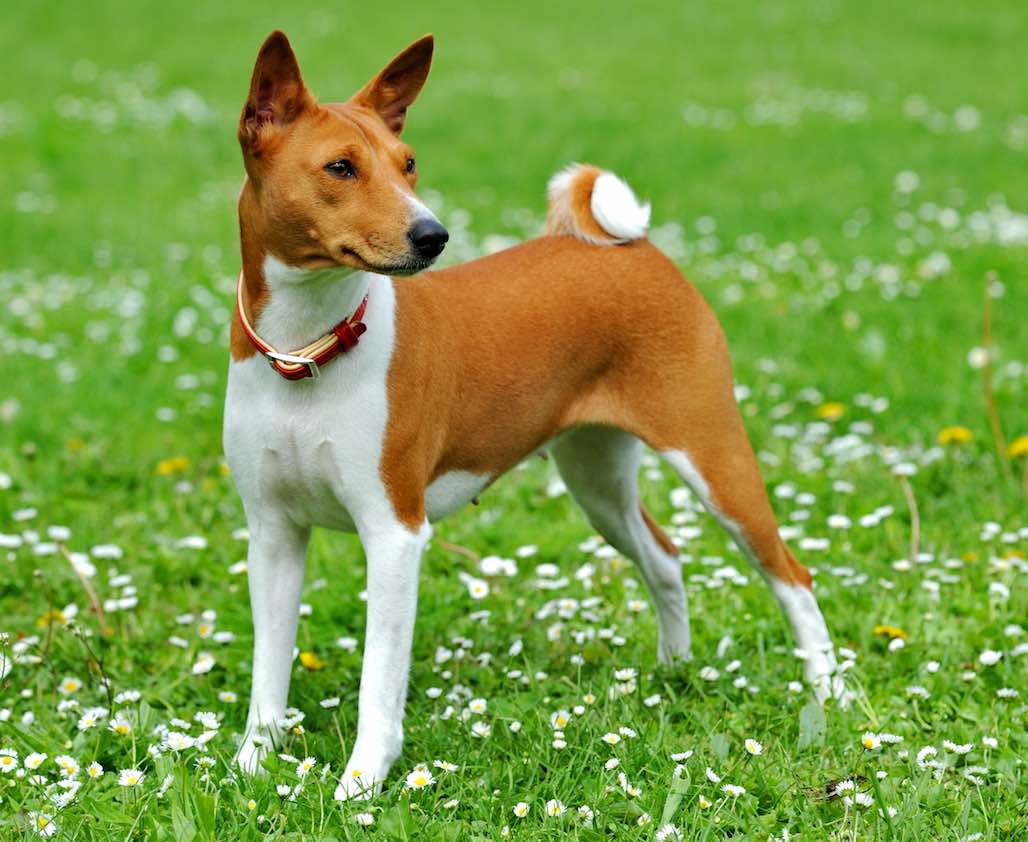
The answer is yes, Basenji dogs can make noise, but they do not bark like other dogs. Instead, they make a variety of other sounds, including yodels, whines, and growls. This is due to the structure of their larynx, which is different from other breeds of dogs. While they may not bark in the traditional sense, Basenjis are still able to communicate effectively with their owners and other dogs.
Despite their unique vocalizations, Basenjis are beloved by many dog owners for their loyal and affectionate personalities. They are also known for their intelligence and independent nature. If you are considering adding a Basenji to your family, it is important to understand their unique characteristics and needs. With proper training and care, these dogs can make wonderful companions for the right owner.

Basenji Origins and History
The Basenji is a unique breed of dog that has a rich history and fascinating origins. This section will explore the breed's African ancestry and historical significance.
African Ancestry and Ancient Egypt
The Basenji is believed to have originated in Africa, specifically in the Congo region. They were bred by African hunters to help them track and catch small game, such as squirrels and birds. The breed's distinctive characteristics, such as their short, fine coat and tightly curled tail, helped them to navigate the dense African forests and brush.
Interestingly, the Basenji's ancient roots can be traced back to ancient Egypt. Depictions of dogs that resemble the Basenji can be found in Mesopotamian art and Egyptian artifacts. The breed was highly valued by the ancient Egyptians, who believed that they possessed magical powers and often depicted them in their art.
Historical Significance and Depictions
Throughout history, the Basenji has been praised for its hunting abilities and unique characteristics. The breed was first introduced to the Western world in the late 19th century, and quickly gained popularity among dog enthusiasts. Today, the Basenji is known for its intelligence, independence, and affectionate nature.
In popular culture, the Basenji has been featured in various films, television shows, and books. One of the most famous depictions of the breed is in the Babylonian epic poem, "Gilgamesh", where a Basenji is described as a loyal companion to the hero.
Overall, the Basenji's rich history and unique characteristics make it a fascinating breed that continues to capture the hearts of dog lovers around the world.
Physical Characteristics
Size: Height and Weight
Basenji dogs are small to medium-sized dogs that typically stand between 16 and 17 inches tall at the shoulder and weigh between 22 and 24 pounds. Females are usually slightly smaller than males.
Distinctive Features: Coat and Color
Basenjis have a short, smooth coat that comes in a variety of colors, including black, red, brindle, and tricolor. The coat is easy to maintain and requires minimal grooming.
One of the most distinctive features of the basenji is their wrinkled forehead, which gives them a unique expression. They also have almond-shaped eyes that are typically a dark brown color.
Another unique feature of the basenji is their curled tail, which is carried over their back. This trait is often referred to as a "screw tail" and is a defining characteristic of the breed.
Overall, the physical characteristics of the basenji make them a unique and easily recognizable breed. Their short coat, wrinkled forehead, curled tail, and almond-shaped eyes all contribute to their distinctive appearance.
Behavioral Traits
Basenji dogs are known for their unique behavioral traits, including their temperament, personality, and communication style. Understanding these traits is crucial for anyone considering adopting a Basenji as a pet.
Temperament and Personality
Basenjis are known for their high energy, intelligence, and independent nature. They are also known for their strong prey drive, which can make them difficult to train and socialize. However, with proper training and socialization, Basenjis can make great pets.
Basenjis are often described as aloof and cat-like in their behavior. They are not typically affectionate dogs and may not enjoy being cuddled or petted. However, they are loyal to their owners and enjoy spending time with them.
Communication and Vocalizations
Basenjis are unique in that they do not bark like other dogs. Instead, they communicate through a variety of vocalizations, including yodels, growls, whines, and howls. These vocalizations are often used to express excitement, frustration, or anxiety.
Basenjis are also known for their body language, which can be used to communicate their emotions and intentions. For example, a Basenji may raise its tail when it is happy or excited, or flatten its ears when it is scared or anxious.
Overall, understanding the behavioral traits of Basenji dogs is crucial for anyone considering adopting one as a pet. While they are unique and interesting dogs, they require a certain level of training and socialization to ensure they are well-behaved and happy in their new home.
The "Barkless" Mystery
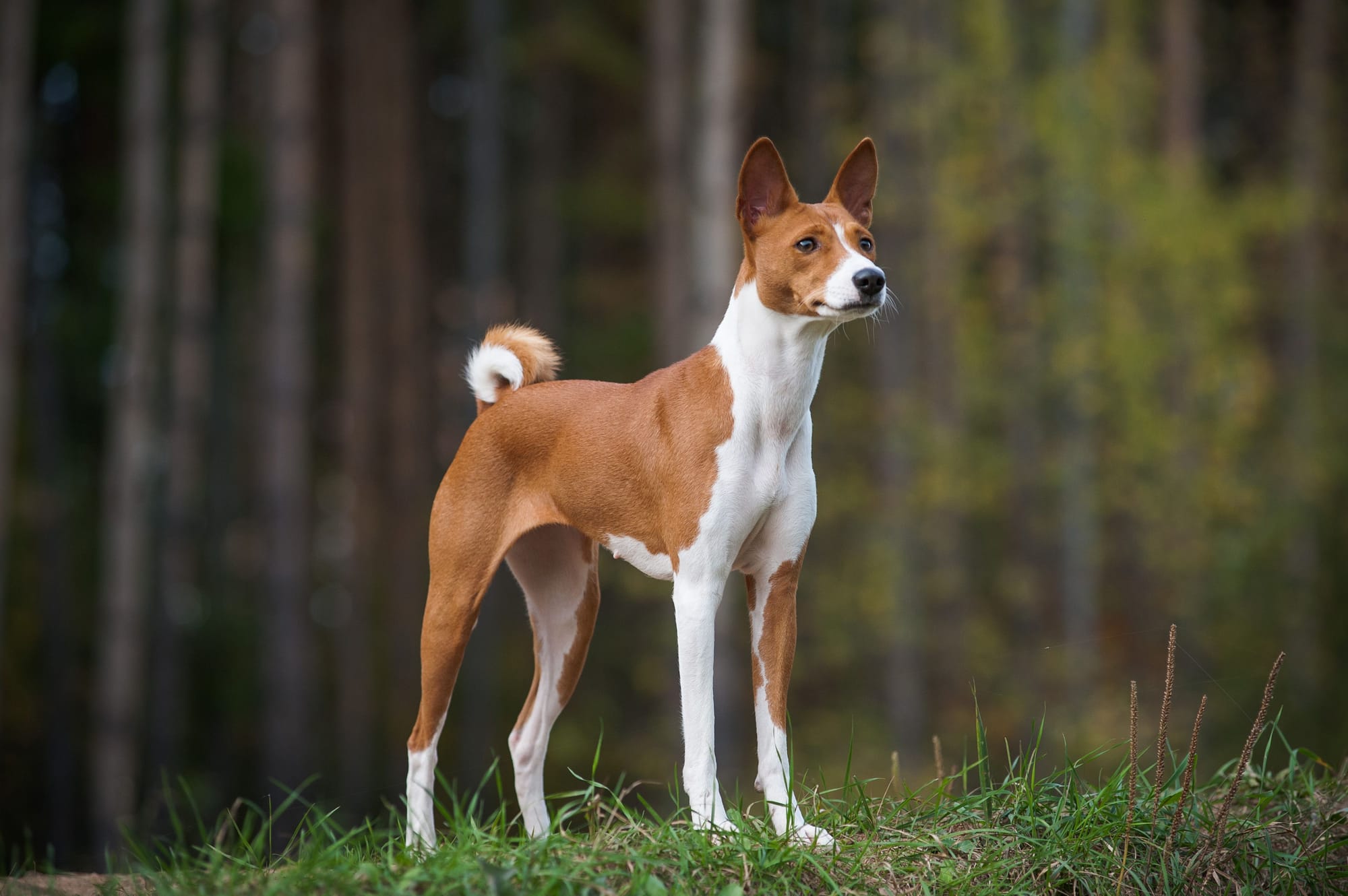
Basenjis are often referred to as "barkless" dogs, which can be a bit of a misnomer. While it is true that they do not bark in the traditional sense, they are not completely silent. In fact, they can make a variety of other vocalizations that are unique to the breed.
Why Basenjis Don't Bark
The reason behind the basenji's lack of barking ability has to do with their larynx. Unlike most dogs, the basenji's larynx is shaped differently, with a smaller laryngeal ventricle and vocal cords that are shorter and thinner. This makes it difficult for them to produce the deep, loud barks that other dogs are capable of.
However, this doesn't mean that basenjis are completely silent. They are known for making a yodel-like sound that is often compared to the sound of a human scream. This yodel is a unique form of communication that basenjis use to express excitement, frustration, or to alert their owners to potential dangers.
Other Forms of Vocalization
In addition to their yodel, basenjis are also capable of making a variety of other sounds. They can growl, whine, and make a range of other vocalizations that are unique to the breed. These sounds are often used to communicate with their owners and other dogs, and can convey a wide range of emotions.
Overall, while basenjis may not bark in the traditional sense, they are still capable of making a variety of vocalizations that are unique to the breed. Their yodel-like sound and other forms of communication make them a fascinating and unique breed of dog.
Health and Care
Common Health Issues
Basenjis are generally healthy dogs, but like all breeds, they are prone to certain health conditions. It is important to be aware of these conditions and to take steps to prevent them from occurring.
One common health issue in Basenjis is hypothyroidism. This condition occurs when the thyroid gland does not produce enough hormones, leading to a decrease in metabolism and energy levels. Symptoms of hypothyroidism include weight gain, lethargy, and hair loss. Treatment typically involves medication to replace the missing hormones.
Another health issue to watch out for is hip dysplasia. This is a genetic condition that affects the hip joint, causing pain, stiffness, and difficulty walking. Regular exercise and a healthy diet can help prevent hip dysplasia, but if it does occur, surgery may be necessary to correct the problem.
Fanconi syndrome is another condition that can affect Basenjis. This is a rare disorder that affects the kidneys, causing them to lose important nutrients and minerals. Symptoms include increased thirst and urination, weight loss, and weakness. Treatment involves managing the symptoms and providing supportive care.
Grooming and Maintenance
Basenjis are low-maintenance dogs when it comes to grooming. They have short, fine coats that do not require regular brushing or trimming. However, they do shed, so regular vacuuming and cleaning is necessary to keep the home clean.
Basenjis are also self-groomers, meaning they clean themselves like cats. This behavior helps keep their coats clean and shiny, but it also means they may ingest hair, which can lead to digestive problems. Providing them with a high-quality diet and regular grooming can help prevent these issues.
In terms of exercise needs, Basenjis are an active breed that require daily exercise to stay healthy and happy. They enjoy running, playing, and exploring, so a fenced yard or regular walks are essential. Regular exercise can also help prevent obesity, which can lead to a variety of health problems.
Overall, Basenjis are a healthy and low-maintenance breed that make great companions for active families. By providing them with proper care and attention, they can live long and happy lives.
Training and Socialization

Training Challenges and Tips
Basenjis are an intelligent breed, but they can be stubborn and independent, which can make training a challenge. They have a strong prey drive, which means they may be easily distracted by small animals and may not respond to commands when they are focused on a scent.
To train a Basenji successfully, it is important to use positive reinforcement techniques, such as treats and praise, rather than punishment. Consistency is also key, as Basenjis can become bored quickly and may lose interest in training if it is not engaging.
One effective training tip is to keep training sessions short and frequent, rather than long and infrequent. This helps to keep the Basenji engaged and interested in the training process.
Importance of Early Socialization
Socialization is crucial for Basenjis, as they can be wary of strangers and other dogs. Early socialization can help to prevent fear and aggression towards unfamiliar people and animals.
Socialization should begin as early as possible, ideally when the Basenji is a puppy. This can involve exposing the puppy to a variety of people, animals, and environments, and rewarding positive behavior.
It is also important to continue socializing the Basenji throughout their life, as they can become more set in their ways as they get older. Regular socialization can help to prevent boredom and destructive behavior, as well as promote a happy and well-adjusted Basenji.
Lifestyle Considerations
Exercise and Activity Level
Basenjis are high-energy dogs that need plenty of exercise to stay healthy and happy. They were originally bred as hunting dogs and have a strong prey drive, so they enjoy activities such as running, tracking, and long walks. It's important to note that they can become destructive if they don't get enough exercise, so they may not be suitable for apartment living or for families who cannot provide them with ample opportunities to burn off energy.
Suitability as Family Pets
Basenjis can make wonderful family pets, but they may not be the best choice for households with small children or other pets. They have a strong hunting instinct and may see smaller animals as prey. They are also independent and can be stubborn at times, which can make training a challenge. However, with proper socialization and training, they can be loyal and loving family members.
Basenji in Popular Culture
Basenjis have a unique set of characteristics that make them stand out from other dog breeds. Their distinctive appearance and behavior have made them popular in various forms of media and art. Here are some examples of how Basenjis have been represented in popular culture:
Representation in Media and Art
Basenjis have been featured in various films, TV shows, and books. One of the most notable examples is the 1986 film "Goodbye, My Lady," which starred a Basenji named "Lady." The film was based on the book of the same name by James H. Street, which tells the story of a young boy who adopts a Basenji and forms a close bond with her.
In addition to film and literature, Basenjis have also been featured in artwork. For example, the American Kennel Club (AKC) has a collection of Basenji-related art, including paintings, sculptures, and prints. The Basenji Club of America (BCOA) also hosts an annual art contest for Basenji-themed artwork.
Famous Basenji Owners
Basenjis have also captured the hearts of many famous people throughout history. For example, the renowned primatologist Jane Goodall owned a Basenji named "Rusty" in the 1960s. Rusty was known for accompanying Goodall on her research trips and even helping her locate chimpanzees in the forest.
Other famous Basenji owners include the late actor James Dean, who owned a Basenji named "Marcus," and the late singer-songwriter Michael Jackson, who owned a Basenji named "Fancy."
Overall, Basenjis have made a significant impact in popular culture, from their representation in media and art to their popularity among famous individuals.
Choosing a Basenji
Basenjis are a unique breed of dog that possess many qualities that make them a good choice for some owners. However, they are not the right fit for everyone. Here are some things to consider when choosing a Basenji.
Pros and Cons of Basenji Ownership
Basenjis are known for their catlike qualities, including their poise and cleanliness. They are also hypoallergenic, making them a good choice for those with allergies. Additionally, they have a longer lifespan than many other dog breeds, living up to 14 years.
However, Basenjis are hunting dogs and have a strong prey drive, which can make them difficult to train and keep under control. They are also known for being independent and stubborn, which can make them a challenge for inexperienced owners. Basenjis are not recommended as pets for families with young children or other pets.
Finding a Reputable Breeder
When looking to purchase a Basenji, it is important to find a reputable breeder who adheres to responsible breeding practices. This can help ensure that your Basenji is healthy and well-adjusted.
A good breeder will provide you with information about the breed, including any potential health issues. They will also allow you to meet the puppy's parents and see where the puppies are being raised. Additionally, they will provide you with a written contract that outlines their responsibilities as a breeder and your responsibilities as an owner.
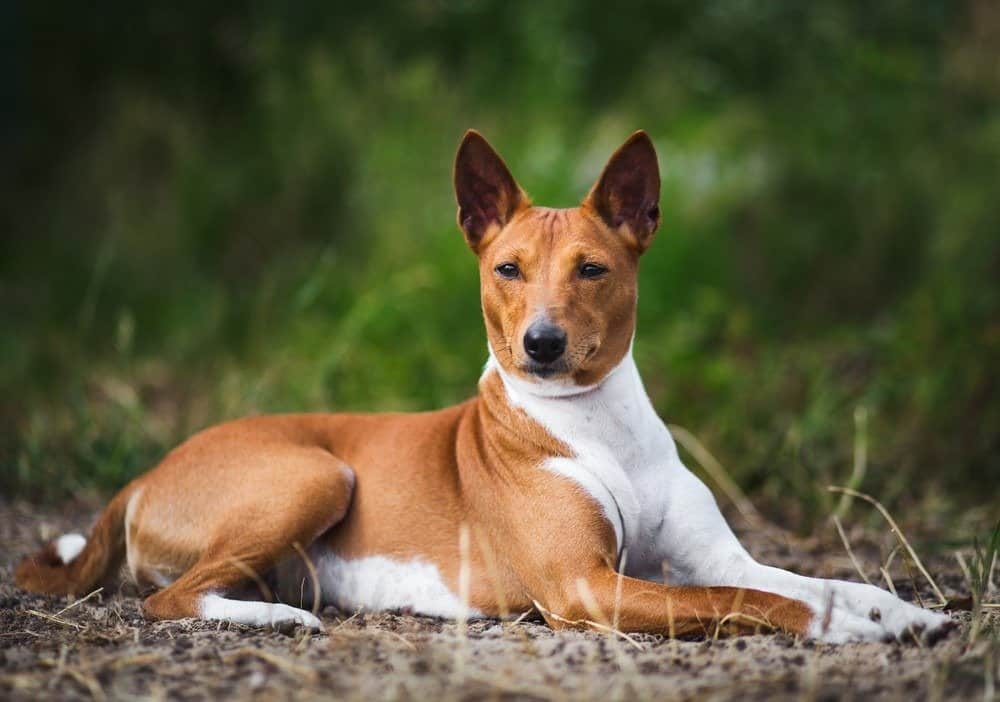
Conclusion
In conclusion, the enigma of Basenji dogs goes beyond their barklessness. Embrace the uniqueness of these canine companions, appreciating the alternative ways they express themselves. Whether you're a seasoned dog owner or considering bringing a Basenji into your life, this article aims to celebrate the extraordinary nature of this remarkable breed.
FAQs (Frequently Asked Questions)
- Do Basenji dogs make any sounds at all?
- Basenjis are known as barkless dogs, but they are not entirely silent. They make unique sounds that differ from traditional barking.
- Are Basenjis suitable for apartment living?
- Yes, Basenjis can adapt to apartment living, but their unique communication style and exercise needs should be considered.
- How do you train a Basenji without using barking cues?
- Training a Basenji requires alternative methods, focusing on positive reinforcement and understanding their non-barking vocalizations.
- Do Basenjis get along with other pets?
- Basenjis can coexist with other pets, but early socialization and proper introductions are crucial for a harmonious household.
- Are there health concerns related to the lack of barking in Basenjis?
- The absence of barking does not necessarily pose health risks. Regular veterinary check-ups are essential for overall well-being.
Other Basenji related articles:

